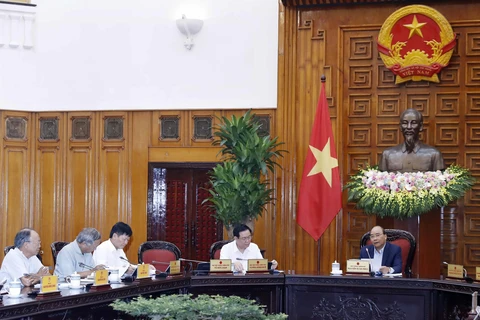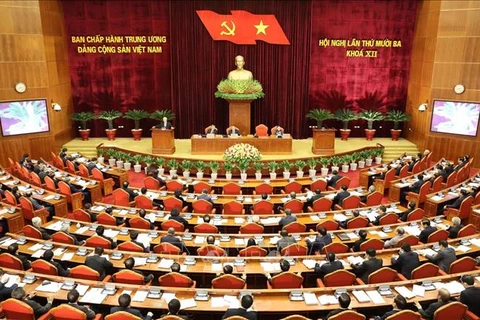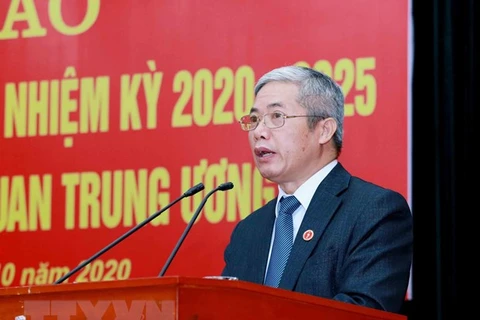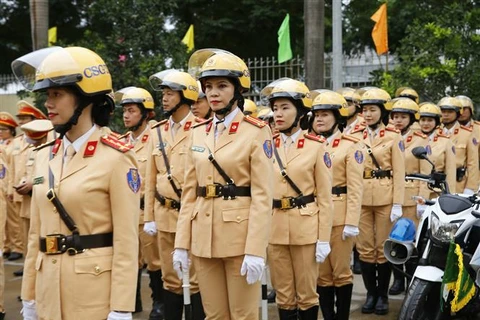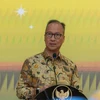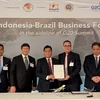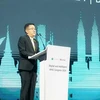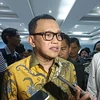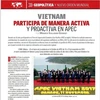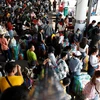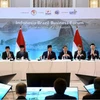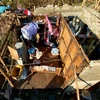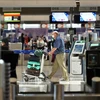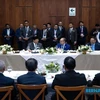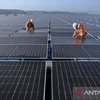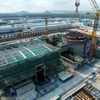Hanoi (VNA) – The Times of India, on January 4, published an article explaining why Vietnam’s upcoming 13th party congress plays an important role in determining East Asia’s future trends.
The author, Rudroneel Ghosh, said the 13th national congress of the Communist Party of Vietnam, slated for January 25 to February 2, comes at a crucial time.
He said Vietnam has done a great job of tackling COVID-19 with just 1,494 cases and 35 deaths so far and attributed the results to the diligence of the party leadership and quick mobilisation of all state resources to nip the pandemic in the bud.
According to the article, Vietnam has been able to cushion the economic blow of the pandemic and is slated to emerge as the fastest growing economy in 2020. The country also witnessed a record trade surplus, it said.
It noted that Vietnam, as the Chair of ASEAN 2020, managed to get the 10-nation bloc to affirm that the 1982 United Nations Convention on the Law of the Sea should be the basis of sovereign rights and entitlements in the East Sea. Also under the country’s chairmanship, the Regional Comprehensive Economic Partnership (RCEP) was signed, creating the world’s largest free trade agreement.
The article highlighted that against such context, the country’s 13th Party Congress will take place to elect a new party central committee and assign the top leadership posts, including the four pillars – the president, prime minister, party general secretary, and the national assembly chairperson.
The author affirmed that current Vietnamese President and Party General Secretary Nguyen Phu Trong has already determined concrete milestones for the future. By 2025, Vietnam is set to become a developing nation with modernity-oriented industry and surpass the low-middle-income level. By 2030, the country will strive to become a developing nation with modern industry and upper-middle-income level. And by 2045, it will aim to become a developed nation with high-income level.
According to the article, the ambitious goals and their achievement would depend much on how Vietnam manages to balance post-pandemic reforms and stability. That’s why the upcoming 13th party congress is so vital to determine the future trajectory of Vietnam by putting in place the right leadership and structures.
And that in turn will add momentum to the free and open Indo-Pacific construct that views East Asia as a rules-based, open, collaborative and prosperous region powering international growth.
In other words, if Vietnam is on track, the free and open Indo-Pacific ideal is on track, the author concluded./.
The author, Rudroneel Ghosh, said the 13th national congress of the Communist Party of Vietnam, slated for January 25 to February 2, comes at a crucial time.
He said Vietnam has done a great job of tackling COVID-19 with just 1,494 cases and 35 deaths so far and attributed the results to the diligence of the party leadership and quick mobilisation of all state resources to nip the pandemic in the bud.
According to the article, Vietnam has been able to cushion the economic blow of the pandemic and is slated to emerge as the fastest growing economy in 2020. The country also witnessed a record trade surplus, it said.
It noted that Vietnam, as the Chair of ASEAN 2020, managed to get the 10-nation bloc to affirm that the 1982 United Nations Convention on the Law of the Sea should be the basis of sovereign rights and entitlements in the East Sea. Also under the country’s chairmanship, the Regional Comprehensive Economic Partnership (RCEP) was signed, creating the world’s largest free trade agreement.
The article highlighted that against such context, the country’s 13th Party Congress will take place to elect a new party central committee and assign the top leadership posts, including the four pillars – the president, prime minister, party general secretary, and the national assembly chairperson.
The author affirmed that current Vietnamese President and Party General Secretary Nguyen Phu Trong has already determined concrete milestones for the future. By 2025, Vietnam is set to become a developing nation with modernity-oriented industry and surpass the low-middle-income level. By 2030, the country will strive to become a developing nation with modern industry and upper-middle-income level. And by 2045, it will aim to become a developed nation with high-income level.
According to the article, the ambitious goals and their achievement would depend much on how Vietnam manages to balance post-pandemic reforms and stability. That’s why the upcoming 13th party congress is so vital to determine the future trajectory of Vietnam by putting in place the right leadership and structures.
And that in turn will add momentum to the free and open Indo-Pacific construct that views East Asia as a rules-based, open, collaborative and prosperous region powering international growth.
In other words, if Vietnam is on track, the free and open Indo-Pacific ideal is on track, the author concluded./.
VNA

